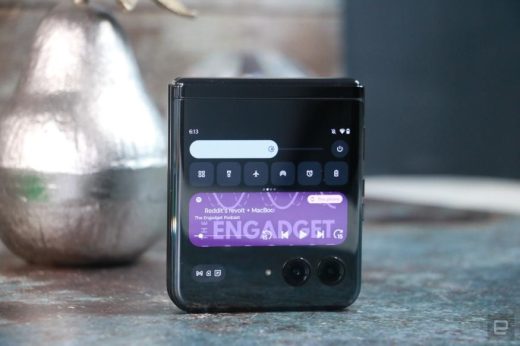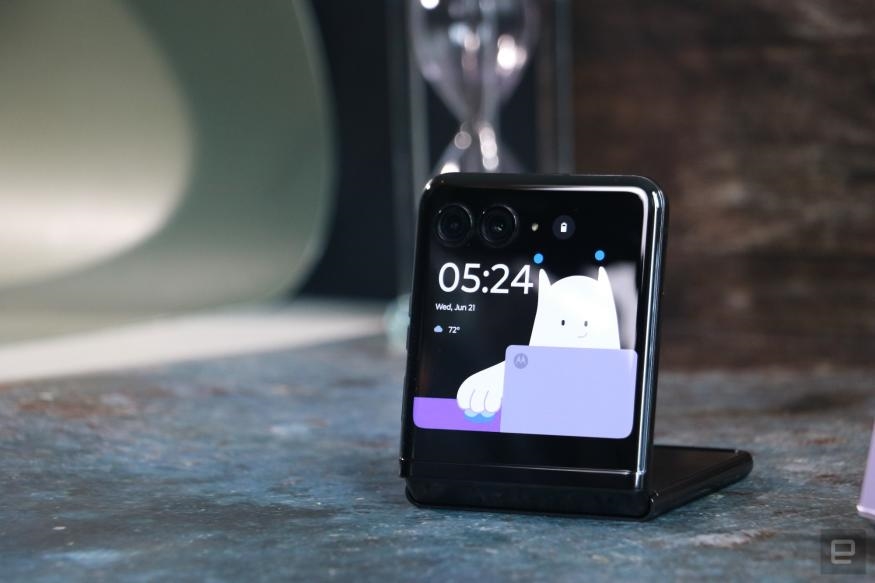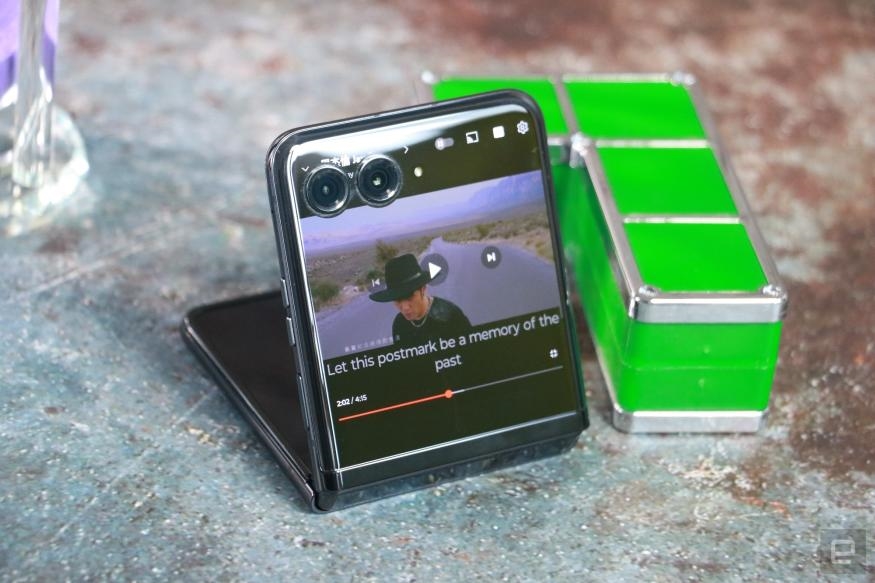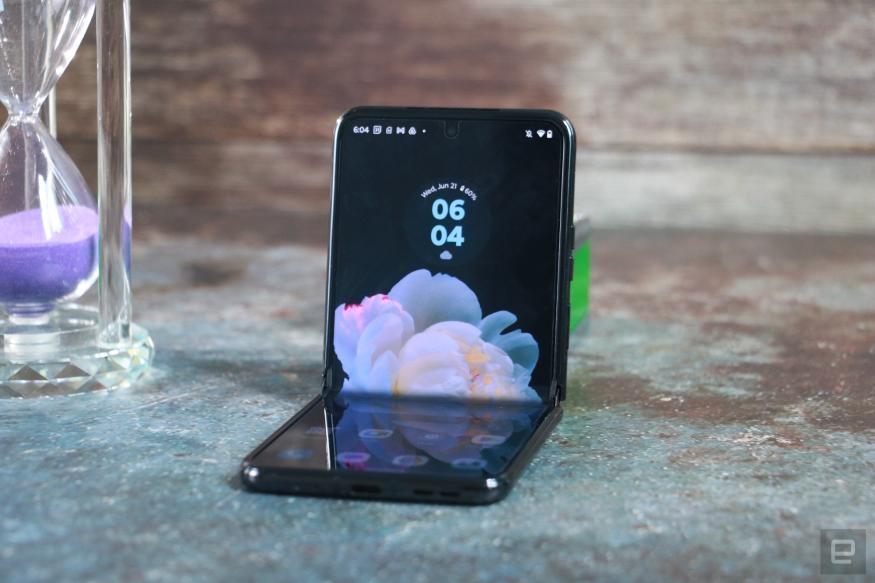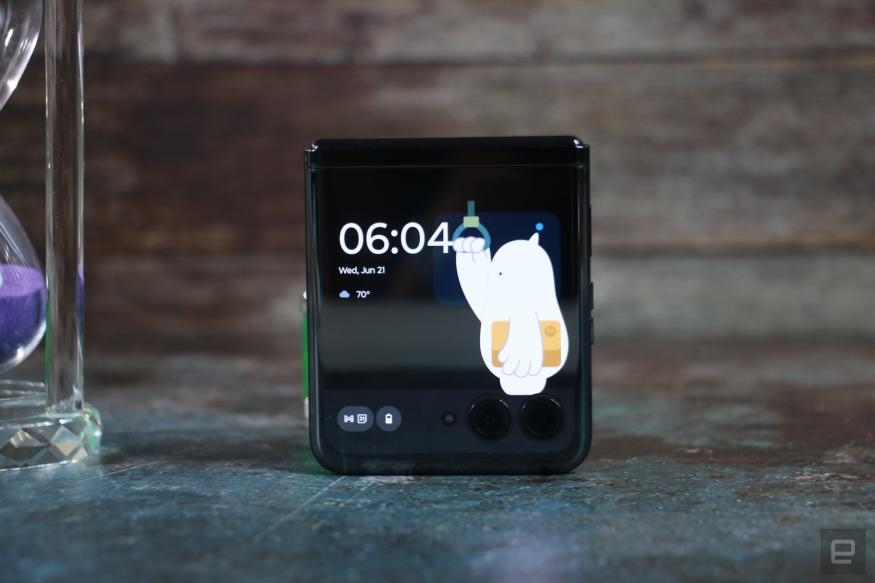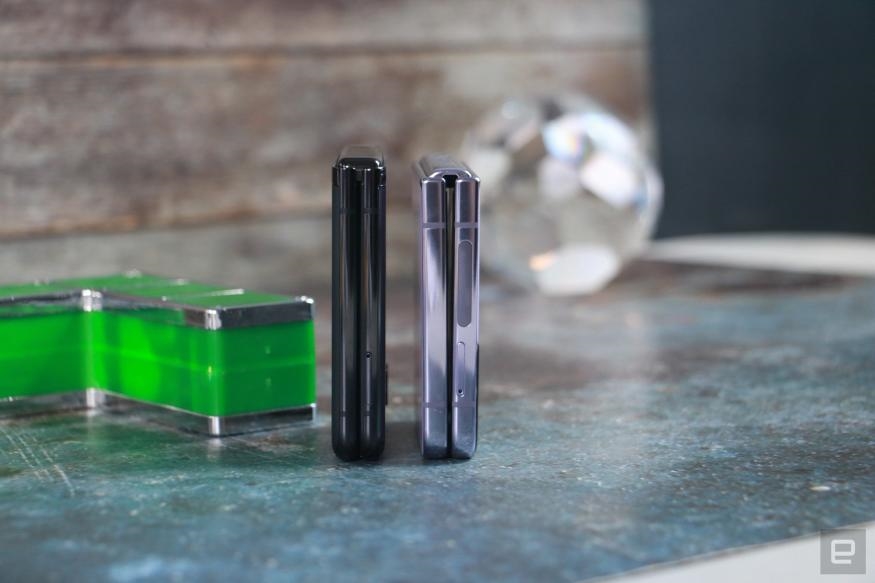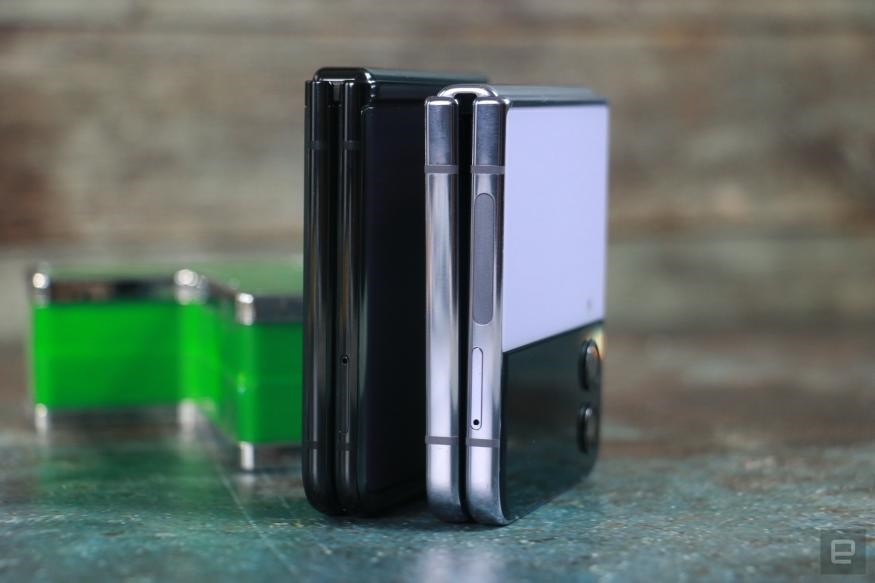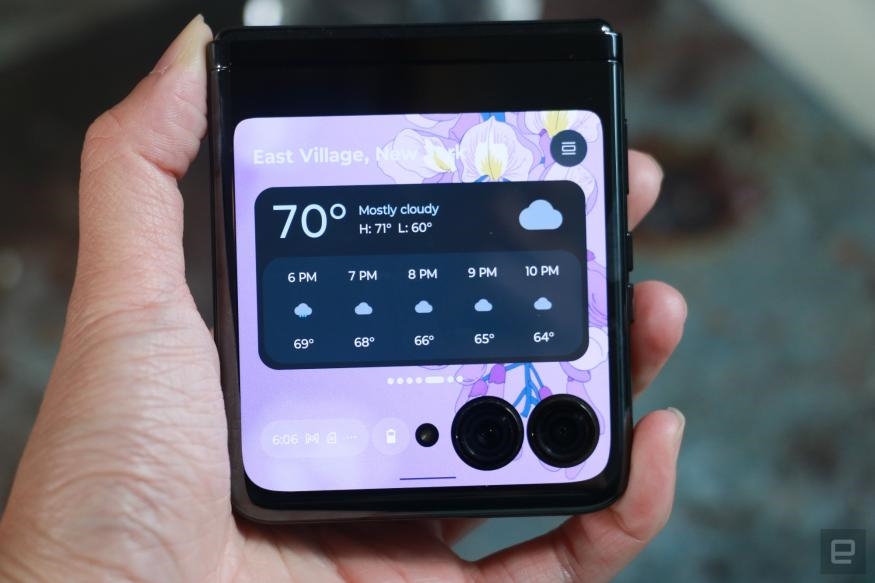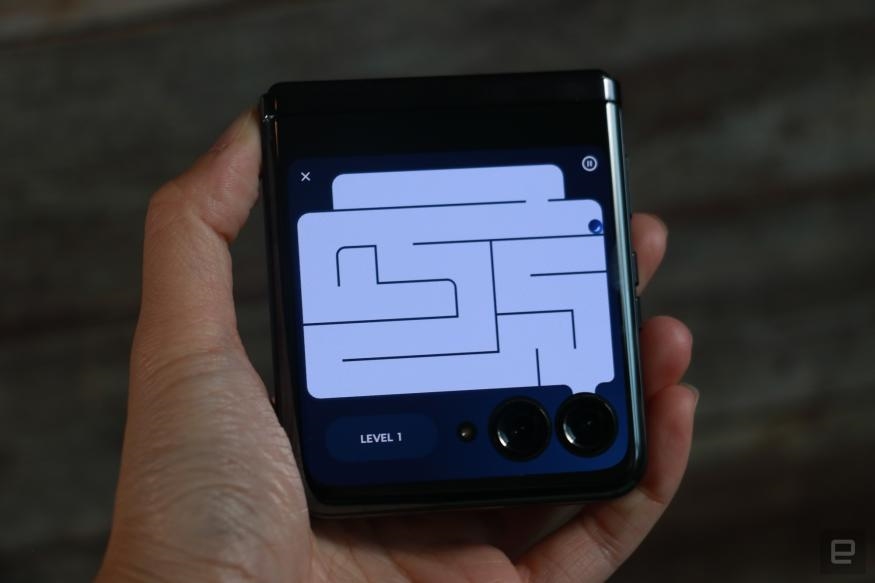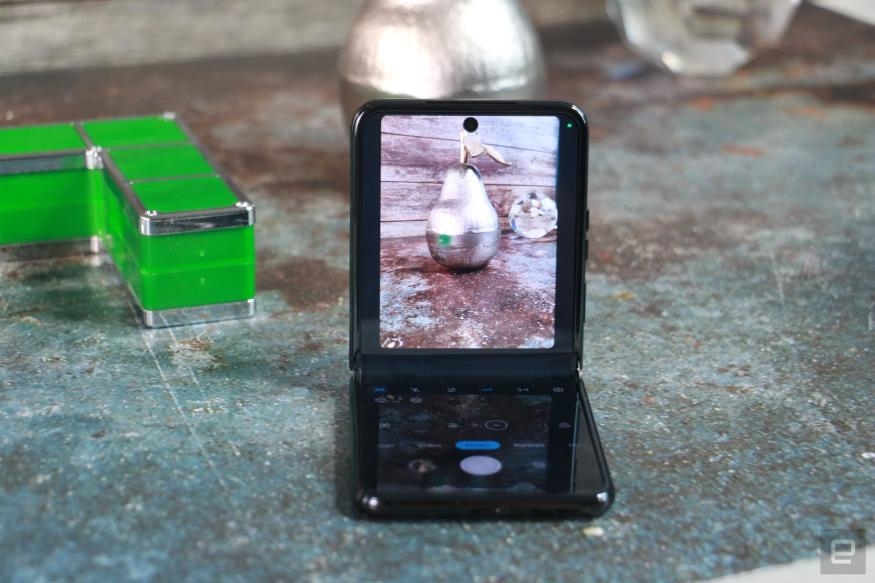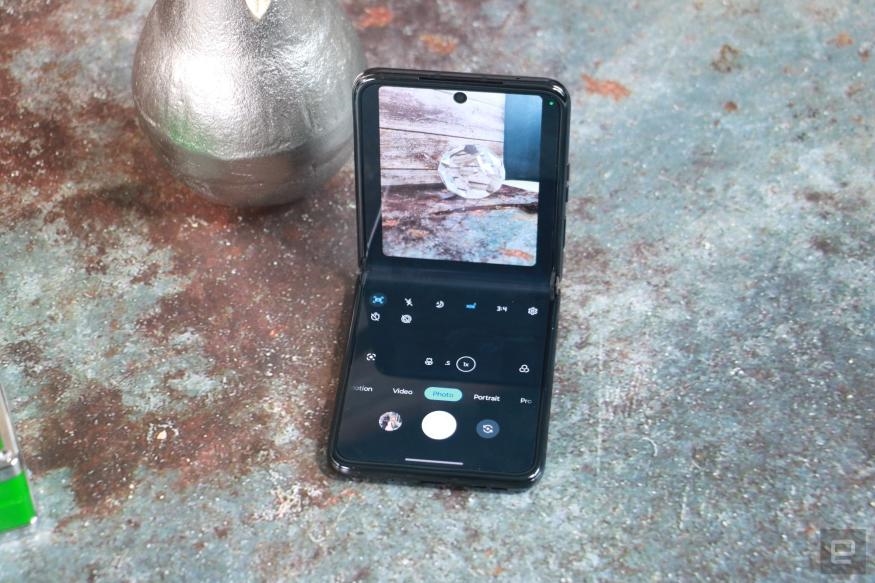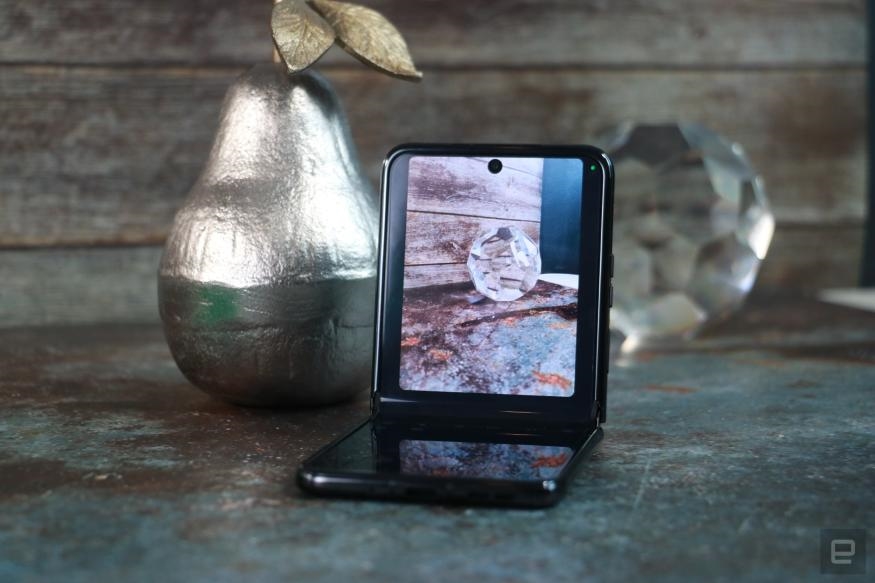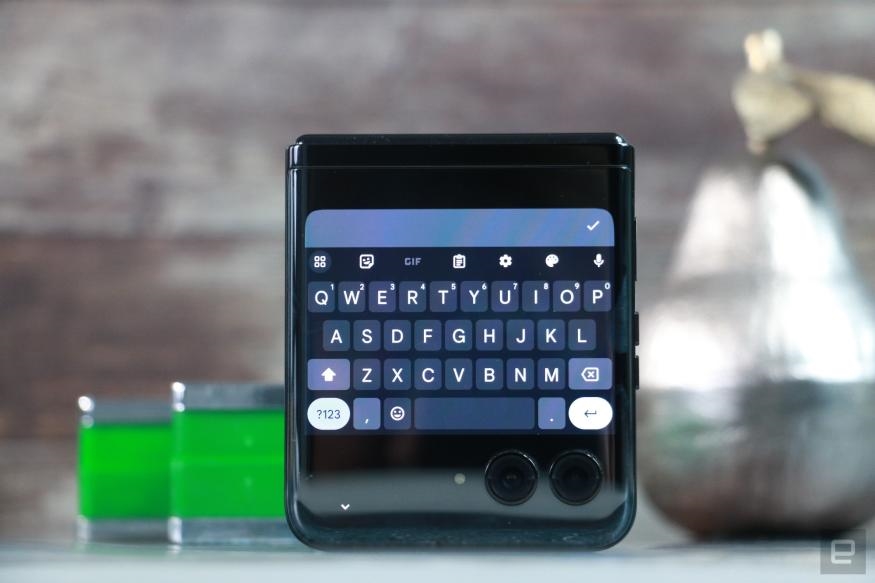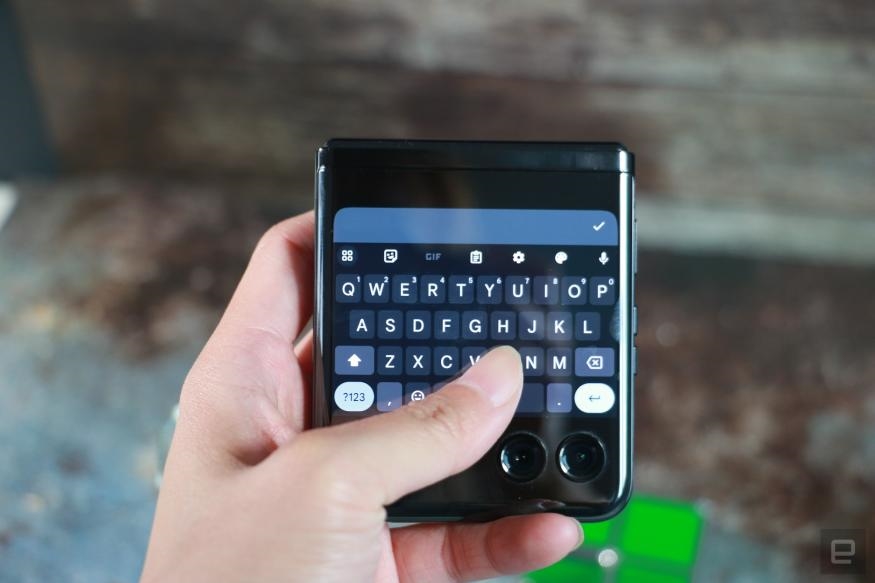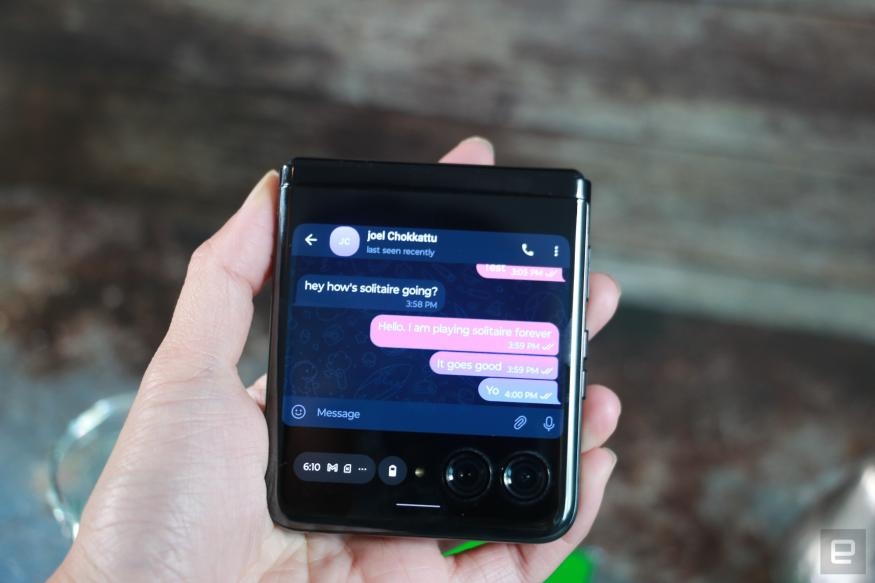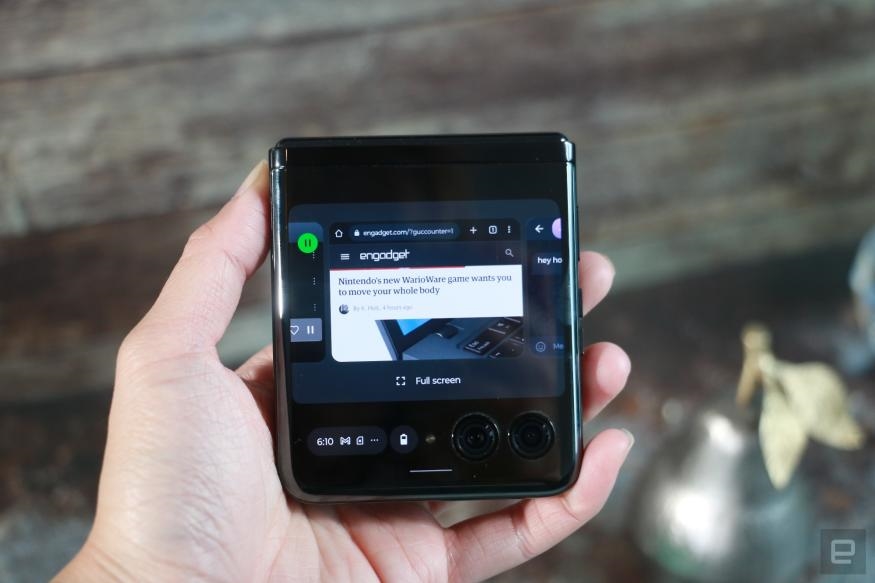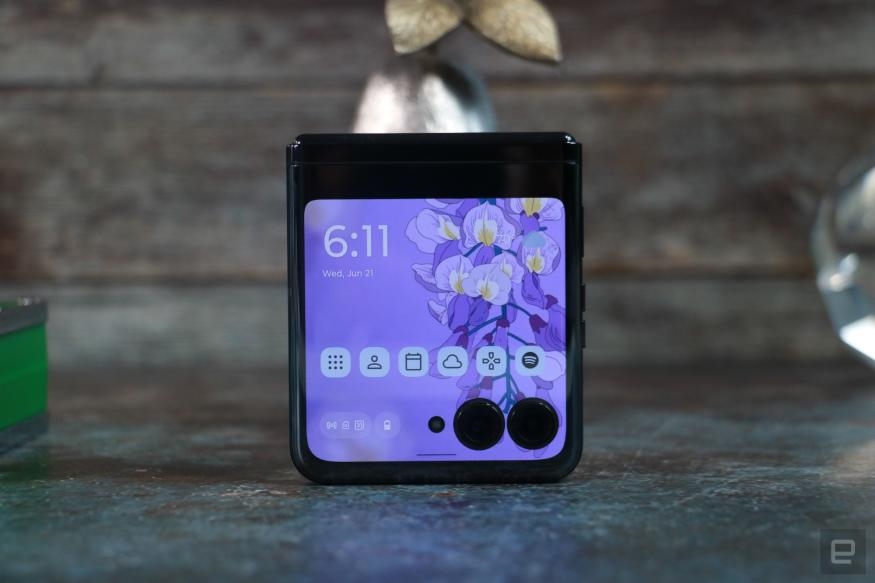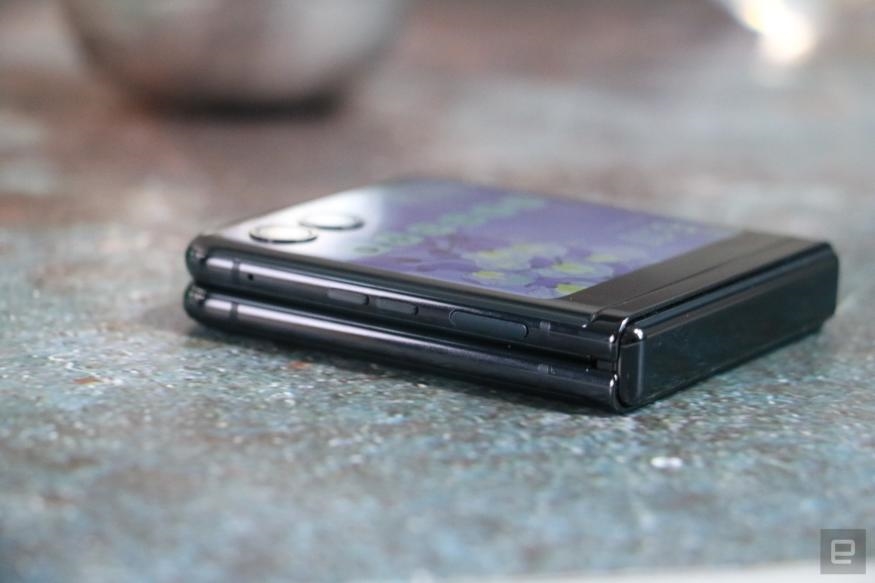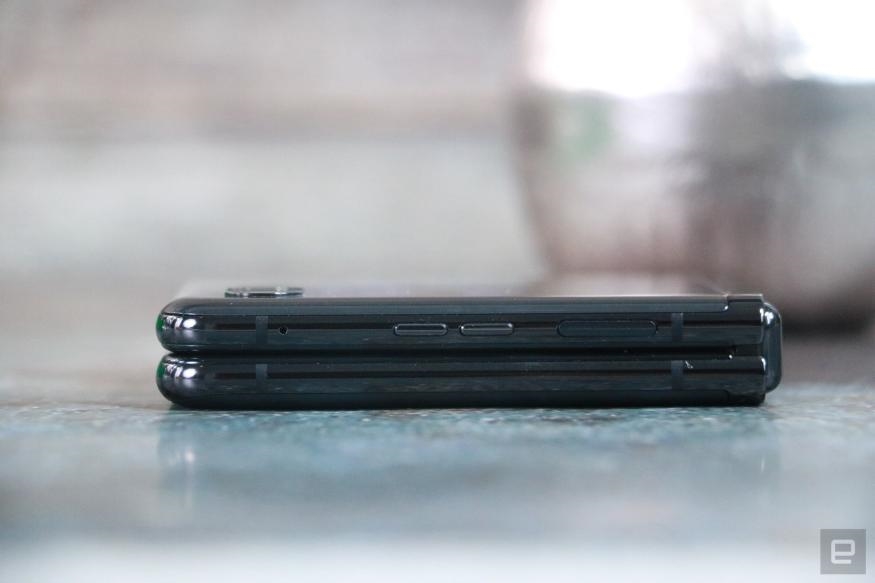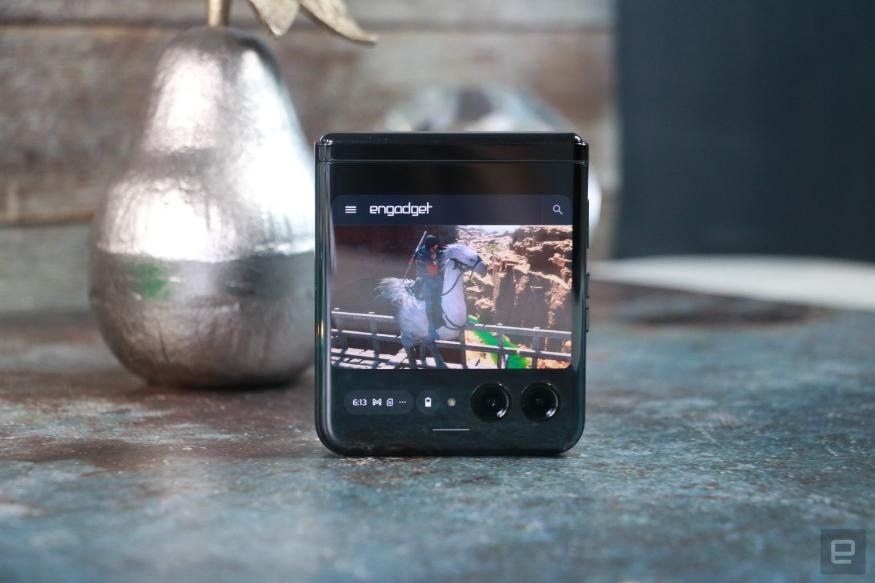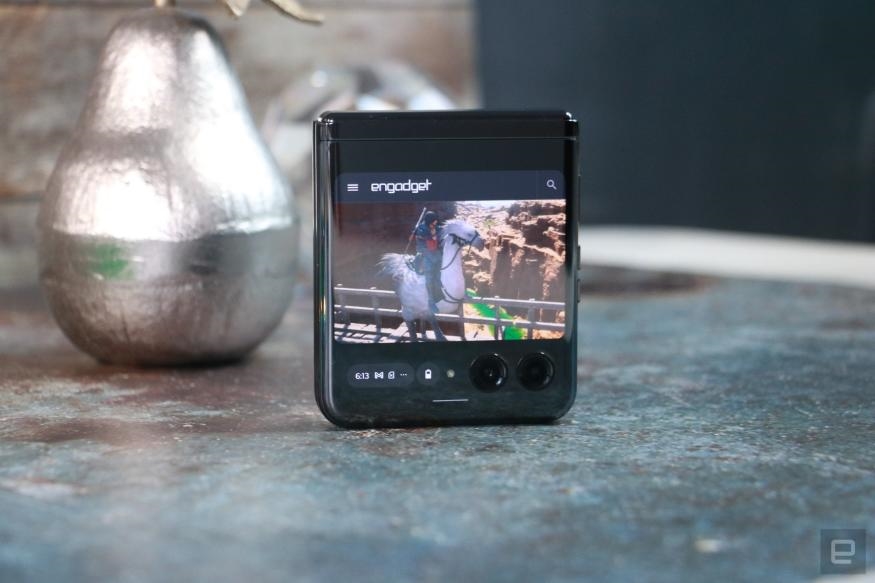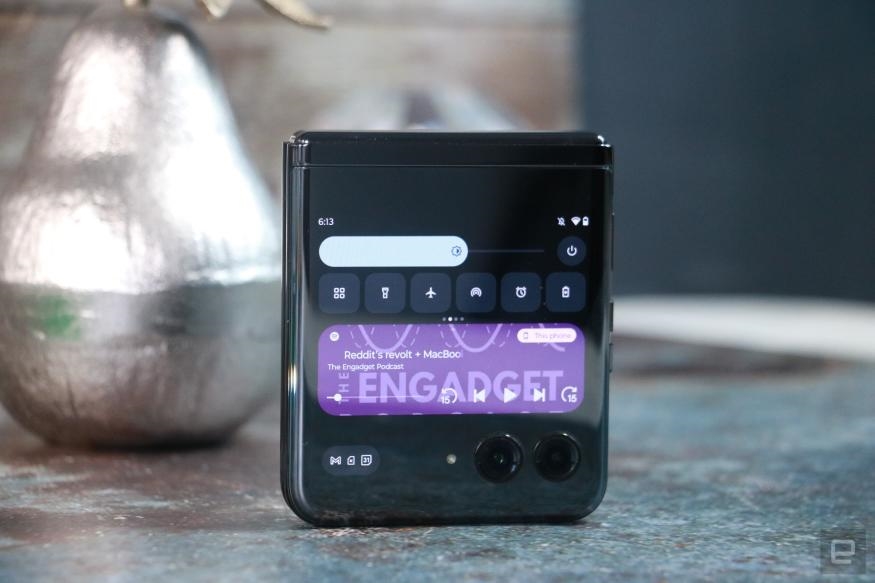Motorola Razr (2023) review: A midrange foldable that underwhelms
Motorola clearly read reviews of Samsung’s Z Flip series and took notes. The Moto Razr+, a foldable phone that’s like a standard 6.9-inch handset when open, offers a large 3.6-inch screen when closed. That addresses one of the most common complaints about the Galaxy Z Flip 4 — the size of its Cover Display. It’s a cramped 1.9-inch window with a limited selection of widgets that you can use. The Razr+, meanwhile, pretty much runs full Android with some tweaks. There’s something about using the outer display that feels almost pager-like and sent me into nostalgic delight. The Moto Razr+, which goes on sale today for $999, might appeal to both old souls and early adopters alike.
Design
Currently in its fourth generation (if you count the 5G model released in 2020 as a second-gen), the Razr+ has two notable differences from its predecessors. The first is the larger display. The second is something only people over 30 might notice: The Razr+ doesn’t have a chin cupping the bottom like on the iconic original Razr. I don’t mind it, but it does cost it some nostalgia points.
Motorola Moto Razr+
Pros
- Useful and roomy external display
- Folds in half to become very compact
- Can be own tripod for photos or videos
Cons
- Cameras cannot compare to flagships
- Long-term durability and security remains a concern
When folded, there is no gap between the two halves of the main screen. It’s a squat square, and its matte back reminds me of the case that my dad’s pager sat in. Sadly, only the Viva Magenta model comes with a vegan leather back, while the blue and black models use Corning Gorilla Glass Victus on the front and rear. Our review unit is black, and the matte finish lends a more premium feel and helps fight smudges.
The folded Razr+ is thinner than the Galaxy Z Flip 4 and fits comfortably in my palm, and it’s slightly larger than the Samsung phone when open. The Razr+ has a slightly less rigid hinge than the Flip 4, too. The Samsung phone can hold itself up at pretty much any position, but Moto’s hinge yields and opens all the way when you push it past 150 degrees.
Finally, at 188.5 grams (6.6 ounces), the Razr+ is lighter than the iPhone 14 Plus and the Galaxy S23 Plus, which both have slightly smaller screens. It’s just a tad heavier than the Z Flip 4, though. Both Motorola and Samsung’s devices are rated for water-resistance, with the Razr+ meeting IP52 standards while the Flip hit IPX8.
External display
Next to the Moto Razr+, using the Z Flip 4’s Cover Display feels unusable, especially when trying to frame a selfie. Not only is there barely enough space to contain everything, but it’s also hard to see. When shooting the video for this piece, our producer Joel Chokkattu struggled to get a usable shot of the camera preview on the Z Flip 4’s exterior display in sunlight.
Motorola’s larger pOLED panel also allows for a more full-fledged Android experience, while Samsung is a glorified notification widget. On the Moto, you can swipe down from top to see all your quick settings toggles and the brightness slider, swipe up slowly to show your open apps and switch between them, and swipe in from the side to go back. In comparison, the Z Flip 4 only lets you swipe sideways to rotate through widgets, and dragging down from top shows you just a single row of toggles.
The main difference between Moto’s external display and the complete Android experience is the home screen. Motorola has designed it so that you can only have the clock widget, date, weather info and a row of six shortcut buttons. Tapping each of the latter takes you to the respective panel. You can also swipe sideways to see them sequentially, and you can arrange them in the order you prefer.
The widgets themselves are very similar to Samsung’s offerings. You’ll find an app launcher, dialer, calendar, games, media controls, steps tracker and the day’s headlines. On the Moto, the latter two are supplied by Google services like Fit and News. Because the Razr+ has more real estate, it can display more information or use a larger font. Both of these are an obvious improvement over Samsung’s teeny tiny panel, especially for those with bigger fingers, less dexterity or vision-related challenges.
The widgets aren’t the scene stealers here. For the most part, they’re simple – a calculator, media controls, et cetera. The Spotify playback widget doesn’t do more than let you pause, skip tracks, rewind and change playlists, which is frustrating. But even the fact that it offers that last option is already better than the Z Flip 4.
Gallery: Moto Razr+ review
You can’t pick a specific song in a playlist, though. It’s a mild annoyance and not a dealbreaker, especially since there are two viable alternatives here. One: I can just open the phone and use the main Spotify app to go to a different playlist and pick a song. Two — and this is where the Razr+ truly shines — any Android app can run on the outside screen, as long as you’ve enabled it. This is a continuity feature so you can keep running whatever you’re doing on the main display on the outside panel after you close the phone.
To use Spotify (or any other app) on the small screen, I’d open it on the inside, shut the device, and continue outside. Even if I go on to do something else, I can find the app on the exterior display by swiping up from the bottom to see open apps.
You’d think that there would be issues with apps breaking and elements either not showing or being blocked by the two cameras on the bottom right of the screen. But Motorola has some workarounds. You can either have apps take up the whole screen and the sensors block parts of it. Or you can swipe up and select a layout that forces the content to sit within a rectangle above the cameras similar to how Android phones used to treat camera notches.
This should work with any app, but there are some scenarios where the experience is broken. When you’re navigating a drive with Google Maps and playing music at the same time, for example, you won’t be able to see the directions or your route. And, just because you can see your Instagram feed on the 3.6-inch panel, doesn’t mean you’ll want to.
Even better, because the screen is so small (basically the size of the original iPhone), it’s easy to use with one hand. You can pull up a full QWERTY keyboard to reply to messages, and I was able to reach the letter Q or A with my thumb stretching across from the right.
Cameras
One other advantage of a larger external screen is how much more useful it is as a viewfinder. Both Samsung and Motorola let you use the outside display to preview what you’re shooting with the rear cameras, as well as show your subject what they look like. On the Z Flip 4, you can only see a portion of the scene and will have to guess where it will get cut off. With the Razr+, no guesswork is necessary – WYSIWYG.
Both phones offer similar gestures like holding up your palm to trigger a countdown till the photo is shot, so you can step away and take your picture when you’re ready and posed. You can also have the foldables bent at 90 degrees and placed on a surface with the inside screen facing out, and the layout will change so the top half is your viewfinder and the bottom shows controls.
Unfortunately, on the Z Flip 4 you have to choose between a bigger viewfinder with an inferior 10-megapixel camera or a smaller window and better cameras. On the Razr+, you can use the roomy outside screen and the exterior cameras instead of having to sacrifice quality or visibility while shooting.
Moto opted for a 32 MP sensor inside, with a 12 MP main camera and 13 MP wide-angle system. Initially, I thought the Razr+ delivered decent shots. But after comparing them to samples from the Z Flip 4 and a Pixel 7 Pro, Motorola’s images are clearly washed out and less vivid. Samsung did a better job at exposure and retained the blue skies peeking through green leaves. In the same scene, the Razr+ blew out the sky. And when I snapped portraits of my friends’ adorable dogs, it struggled to get a clear shot due to slower focus and overall lag.
The Moto also struggled in low light and was susceptible to lens flares in my nighttime cityscapes and selfies. Though the Flip 4 fared slightly better, overall flip-style foldables lag flagship phones when it comes to camera performance.
As a regular phone: Main screen, performance and battery life
Unlike most high-end Android phones released this year, the Moto Razr+ uses a year-old Snapdragon 8 Gen 1 chip, which is the same processor inside the Z Flip 4. It’s worth pointing out at this point that the Flip 4 is also nearly a year old and presumably about to be replaced by a newer model. So if having the absolute latest specs matters to you, you shouldn’t even be considering the Razr+.
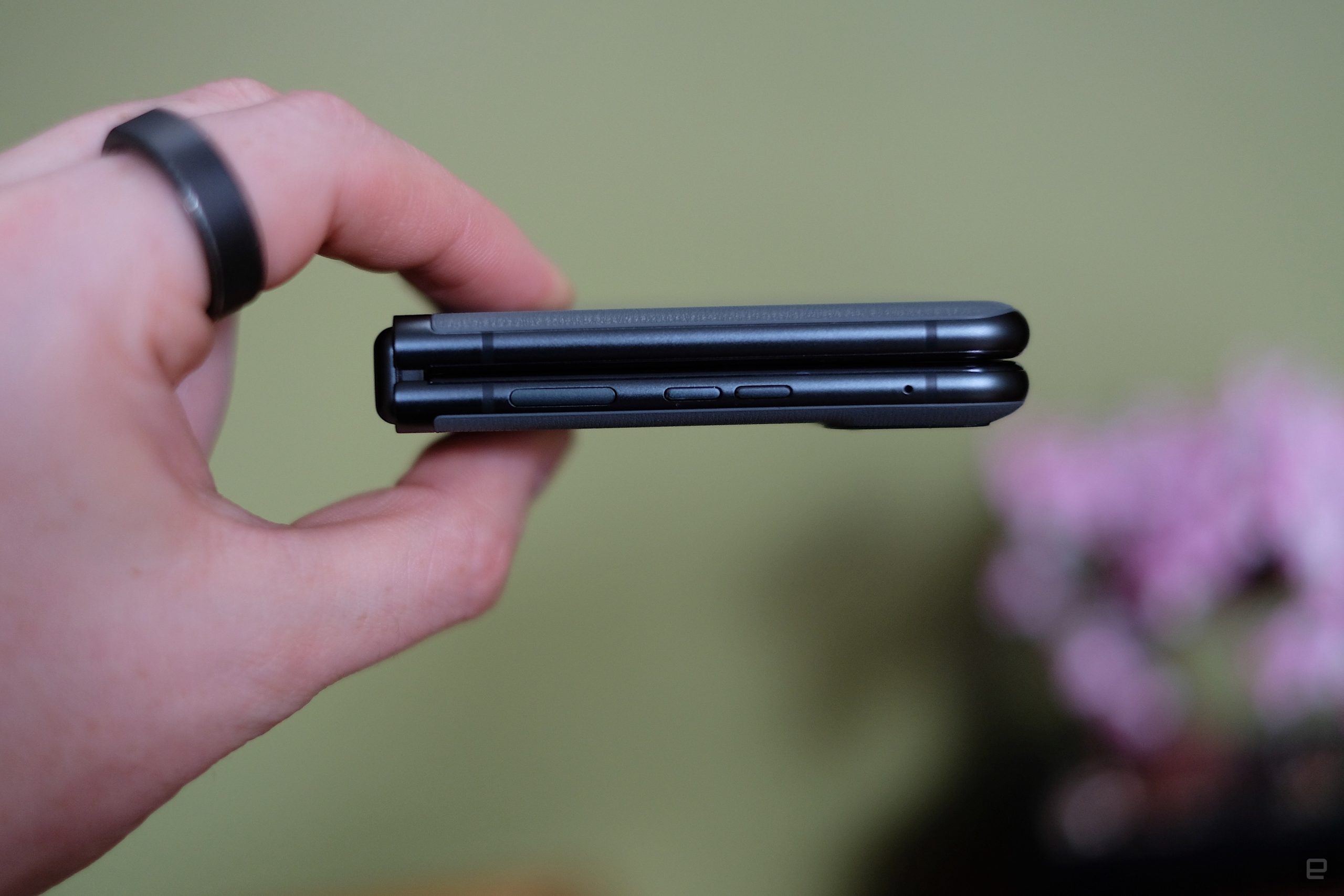
If you’re not picky about the exact generation of processor in your phone, you’ll likely be satisfied with the Moto’s performance. I played endless rounds of Solitaire, messaged friends, set up custom gestures, changed wallpapers and it never flinched. The few hiccups I did encounter, like not being able to hit the X button at the outermost corners of an ad in a game, had more to do with specific apps and bad design than horsepower.
Thanks to its 165Hz refresh rate and 1080p resolution, the Razr+’s main OLED display is a solid canvas for activities like scrolling through Instagram and Reddit. Pictures and Stories I looked at were vibrant, and yes, there is still a bit of a crease where the screen folds, but it’s negligible. It doesn’t get in the way of actually interacting with apps or websites, and I mostly forgot it was even there.
When I needed to unlock the Razr+, it was as easy as using the fingerprint sensor embedded in the power button. Motorola also continues to offer nifty features that have been in its phones since the Moto X, like twisting your wrist or doing a chopping action while holding the handset to launch the camera or flashlight. It was also surprisingly easy to install the company’s Ready For app to use the Razr+ on my PC. While I was initially put off by the amount of Moto-branded software, thankfully most of it was useful and didn’t feel like bloatware.
Though the company promises three years of OS upgrades and four years of bi-monthly security patch updates, historically it hasn’t had the best track record on that front. And that’s less than the four years of OS updates and five years for security releases that Samsung offers. That, together with Samsung’s experience in foldables, gives me slightly more confidence in its devices’ longevity.
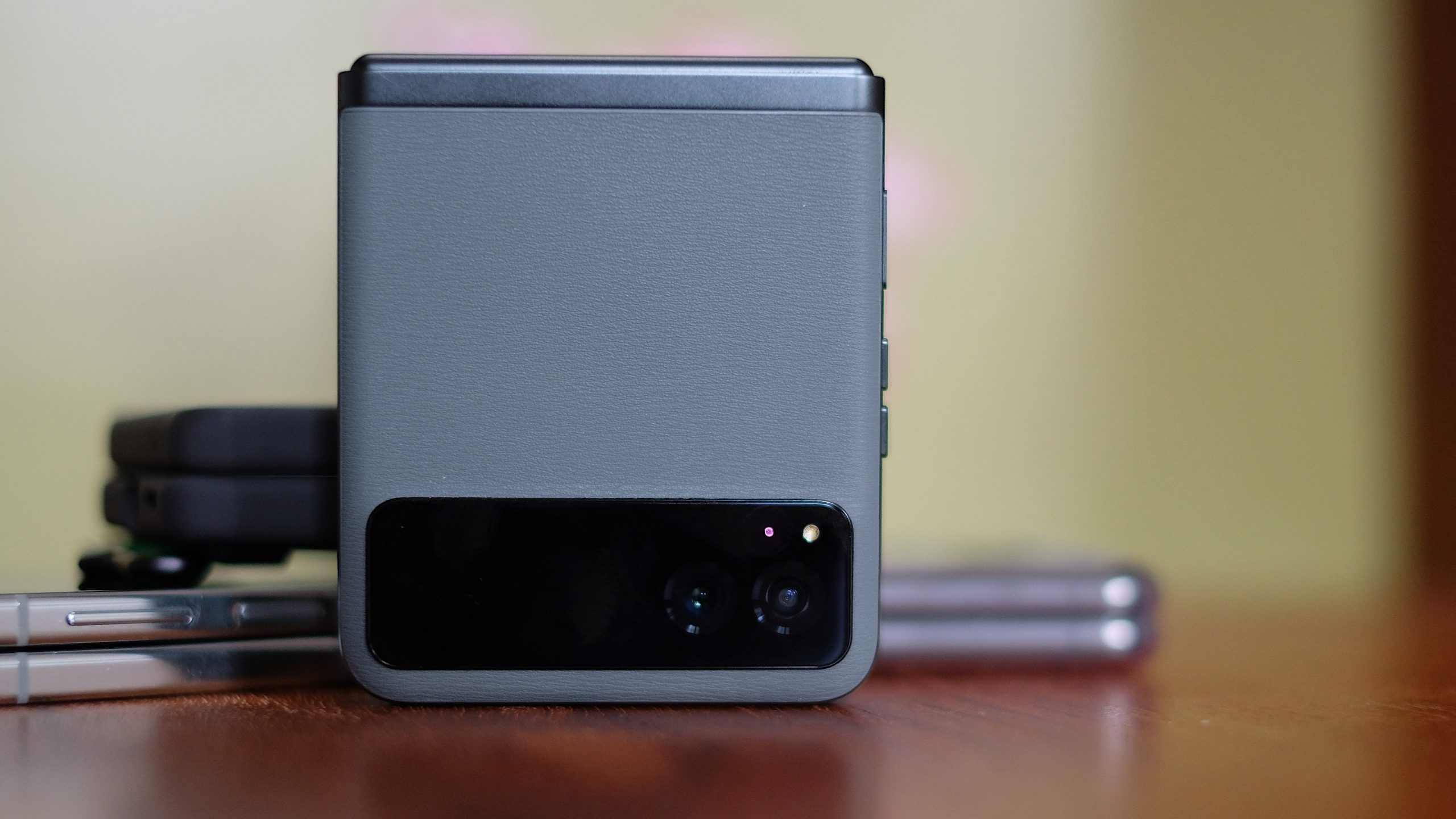
Moto managed to squeeze a 3,800mAh battery in the Razr+, which is slightly higher than the Flip 4’s 3,700 mAh setup. I haven’t had the time to run our video rundown battery test, which I want to do on both the 6.9-inch and 3.6-inch panels. But I’ve been able to play about five to eight hours of nonstop Solitaire on the internal screen so far before needing to plug the Razr+ in. It’s also worth noting that since the exterior display is so much more useful, you can do more on the phone without having to tap the larger, more energy-intensive screen during the day. That way, the Moto actually manages to last longer than most phones.
Wrap-up
I am in love with that front screen — how it works, how easy it is to use with one hand, and how much more power efficient it is. It’s almost like I want a small phone again. But the main thing preventing me from switching to the Moto Razr+ is camera performance. This isn’t a problem unique to Motorola — any flip-style foldable today suffers from this.
Anyone thinking of getting the Razr+ should also wait. Samsung has announced that its next Galaxy Unpacked will be taking place in Korea in late July, and it’s widely expected to launch new foldables then. If you can hold off, it’s worth seeing what the next Z Flip will offer before spending your money.
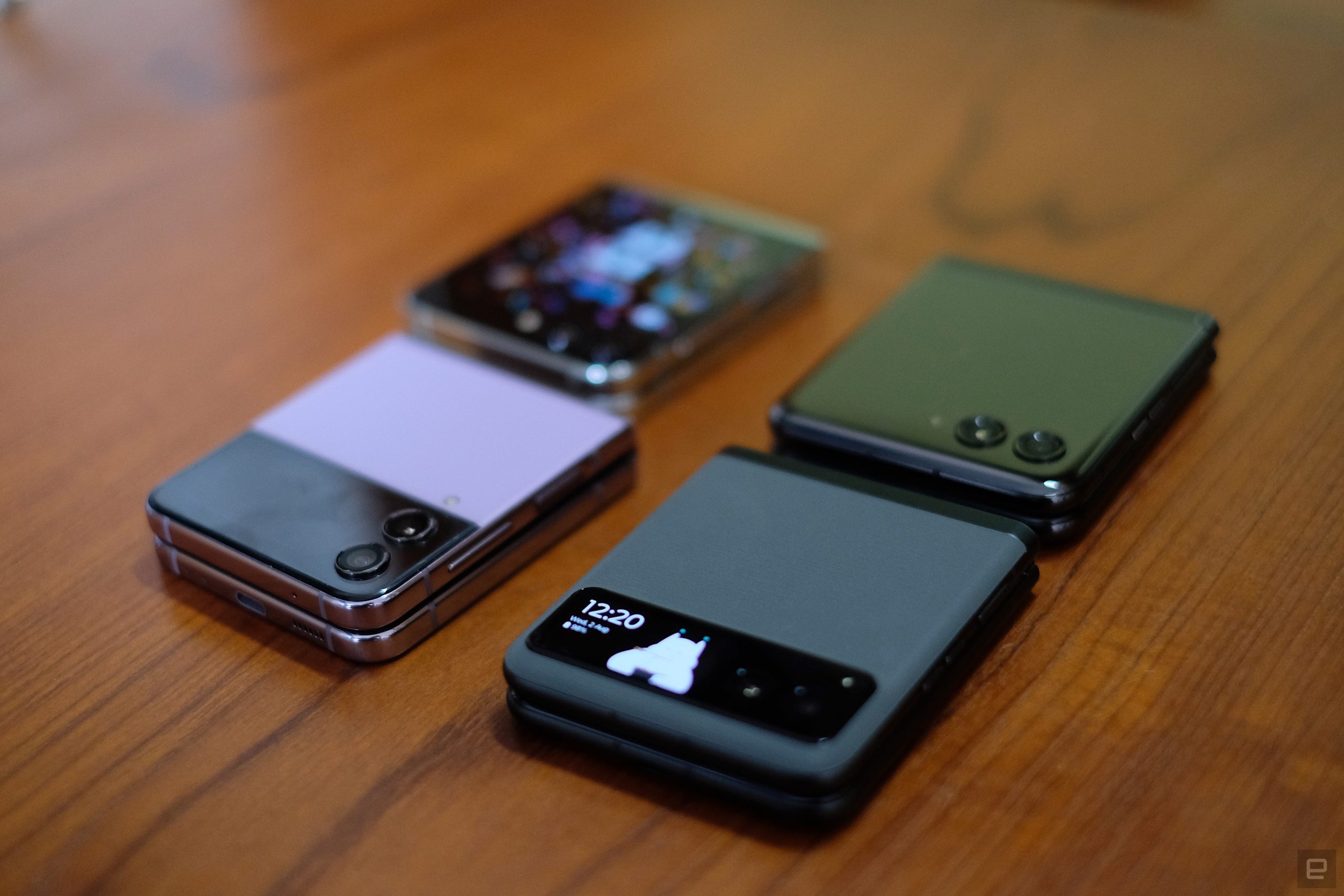
I also want to point out that long-term durability remains a concern for any device with a flexible screen. Two of my colleagues have used a Z Flip 4 for a year and they’ve reported seeing cracks and bubbles in their displays and/or screen protectors. While the Razr+ uses a different panel from Samsung, there is still a possibility it won’t stand up to the wear and tear of daily use.
I can’t tell you how well the Moto Razr+ will hold up over time. But I can say that, for the first time in the US, there is serious competition for Samsung’s Z Flip 4. It’s time to call it: Flip Boi Summer is here and I’m excited for it.
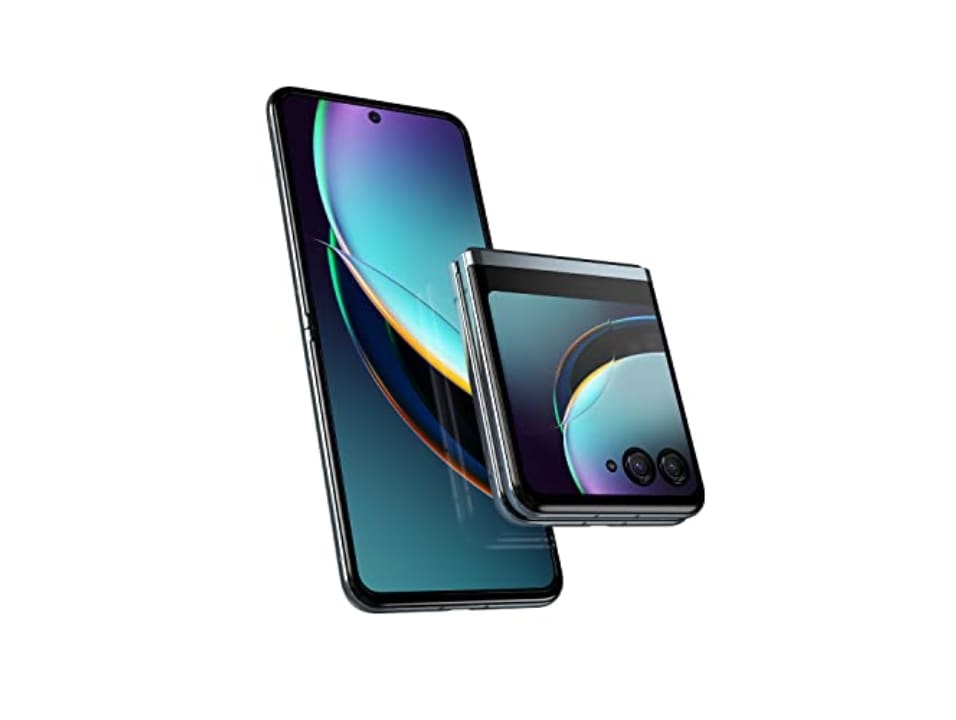
Motorola razr+
(19)

